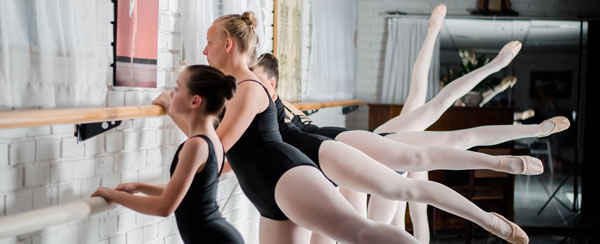Keeping Your Children Busy With Extracurricular Activities
As the old adage goes: “All work and no play makes Jack a dull boy.” Academics are highly important for your child’s future success, but there is more to life than hitting the books. Not only are extracurricular activities important for your child’s happiness, but they can help them become more well-rounded individuals, teach them about teamwork and the importance of community, and even make them more attractive candidates on their university applications in the future. Here at the Australian International School, we encourage students to participate in extracurricular activities, and we have some advice that might help you and your children decide which activities will benefit them most.
Deciding on an activity with your child
The best way to determine which activity or activities your children will thrive in is to speak with them. That might seem like common sense, but some parents might be inclined to nudge their children toward activities that they themselves participated in during their youth. A child likely won’t enjoy or be successful in an extracurricular activity unless he or she truly enjoys it and is interested in it, so it’s best to let them forge their own way and land on something that really piques their interest.
However, by the same token, some children might not immediately alight on an activity that attracts them. Try not to get frustrated if they grow weary of tap lessons one month and swear that rock climbing is their true passion the next. Sometimes a little exploration is necessary in order to find their passion.
Sports
When it comes to extracurricular activities, sports are often at the top of the list. Your children can participate in team sports both inside of school – the Australian International School offers 100 inclusive opportunities with 100 competitive teams – so there are many opportunities for your children to hit the field, court, track or swimming pool. Furthermore, children who demonstrate excellence in sports are sometimes offered scholarship opportunities at leading universities, based on their performance. Sports also teach your children the values of teamwork and responsibility – skills that transfer positively into the classroom and later life.
The arts
For students who prefer the arts or those who are interested in participating in sports in addition to other pursuits, there are many activities to satisfy your child’s creativity. Artistic extracurricular activities are wide in scope and can include (but are by no means limited to!):
- Dance
- Theatre (acting, set design)
- Music (singing, instruments)
- Visual arts
- Sculpture
- Photography
- Fashion
- Graphic design
- Ceramics
As with sports, success in the arts can lead to many opportunities for children in the future. For example, a nurturing art teacher can help a student create a portfolio that will attract the attention of top art schools the world over.
School-based activities
While many schools, including international schools in Singapore, offer students the opportunity to participate in sports and the arts, they also offer school-based extracurricular activities for students. Students can explore their interests while developing leadership skills, refining their talents in various academic subjects, developing themselves as writers and perhaps even contributing to the local community. School-based activities can include (but are by no means limited to!):
- Student government
- Newspaper
- Foreign language clubs
- Debate team
- Academic teams
- Choir
- Bands
- Orchestra
- Model UN
Any and all of these activities will give your child a leg up that demonstrates what they are capable of beyond their academic performance. These activities will help develop their interests and show future university administrators that they participated in vibrant and varied lives outside of the classroom.
Long-term benefits of extracurricular activities
Participation in any of these activities will help your child to develop skills that they wouldn’t learn in the classroom alone and can also be an attractive addition to their university applications. Furthermore, they will help them decipher what interests them and what activities they wish to pursue in the future. Being active in sports will help them learn the value of teamwork and the importance of responsibility – those early morning game times are unflinching! Taking part in dance or theater can help students explore their creativity and can help to overcome any anxiety they might have about performing or speaking up in front of a crowd. And any number of school-based activities will help them determine what interests them most in life while developing invaluable life skills. At AIS we let all of our students and parents know that this world of opportunity is open to them.






